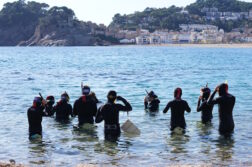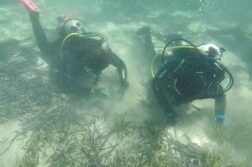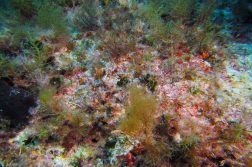In MARGECH-I we will generate massive amounts of marine biodiversity data using amplicon sequencing (metabarcoding) to monitor global change impacts and to develop biosecurity tools. The so-called big community data, obtained from the exhaustive biodiversity inventories attainable with genetic tools can be mined for targeted research on applied aspects. We will focus, on the one hand, on climate change impacts. We seek to contribute baseline data on relevant benthic communities as well as continue ongoing temporal biomonitoring along the Mediterranean Iberian coast and in National Parks with maritime domains (Cabrera Archipelago and Galician Atlantic Islands). The application of machine learning algorithms and joint distribution models will allow us to evaluate ongoing changes in the communities surveyed and to detect indicator taxonomic units.
On the other hand, multi-marker amplicon-sequencing will also be applied to biosecurity issues. We will survey port communities and open water communities to monitor the arrival and interactions of introduced species and to identify harmful species for marine organisms, for
environmental quality, and for human health (pest, pathogen, HAB-forming species).
We will also perform a targeted research of protists that act as parasites and pathogens on cultured bivalves and associated ascidians in the Ebro Delta. This culture setting is among the largest in W Mediterranean, and its constant interaction with farming fields and river discharges makes it highly vulnerable to diseases of the cultured bivalves, which can also accumulate pathogens of human health concern.




